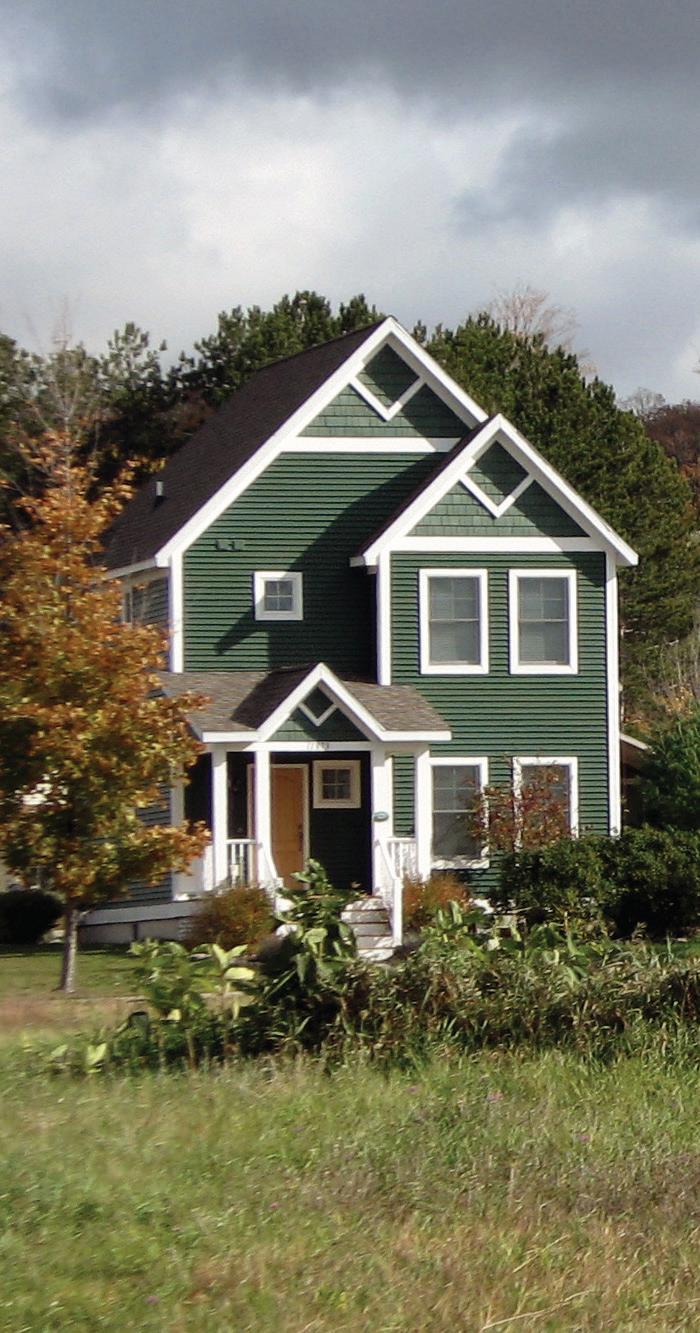
2 minute read
THE DANGER OF THE STATUS QUO
from Case for support 2
by Yarrow Brown
The effects of the affordable housing shortage reach far beyond prospective renters and homebuyers. The lack of housing has a ripple effect throughout northwest Michigan, challenging our region’s economic success by hindering local businesses from attracting and retaining talent. Quality housing is an essential ingredient to securing quality employees.

Advertisement

This problem is primarily due to the staggering uptick in short-term housing rentals. Prioritizing vacation rentals over single-family housing and long-term rentals deprives our community of diversity, exchanging flourishing families and engaged community members for week-long vacationers.
Where is this cycle headed? We are already seeing the effects as eager tourists arrive in our region to find the restaurants and shops understaffed, if not closed, due to these often insurmountable staffing challenges. Community business leaders agree that this is not a problem wage increases alone can fix.
“We just hired a key employee that couldn’t find a place for a long, long time. Housing is such a determinant to the quality of staff.”
Bob believes this is not a problem that higher wages alone can solve. Many people struggling to find housing are making well above minimum wage.
“Affordable housing is not just someone trying to make ends meet making $12/hour. No, these are professionals.”
–Bob Sutherland, community leader; nonprofit board director; former L eelanau County commissioner; business owner, Cherry Republic

“Operating cocktail bars/restaurants in three other locations in Michigan, we can say without a doubt that those communities have prioritized the creation of workforce and affordable housing as part of their community development efforts. Knowing that successful and sustainable tourism economies require attainable housing for staff, we hope that Charlevoix continues to consider ways to create new housing for a more stable workforce in the region.”
Long Road Distillers is an award-winning craft spirit distillery that operates tasting rooms and cocktail bars in 3 successful west Michigan locations. In 2020, the company was excited to add a Charlevoix tasting room as their fourth site, making the significant investment required to prepare for a 2021 opening. However, after several months spent struggling to find employees, even including a higher-paying manager position, they began to recognize the insurmountable barrier to their success: housing.
Greatly disappointed, but unable to find a solution to their staffing problem, Long Road Distillers ultimately abandoned their Charlevoix location, leaving the community without the employment opportunities and positive contribution they would have otherwise made to the local economy.

“Being able to employ people is a challenge. [In] my vineyard and winery business, three-quarters of the employees live outside of the County because of the affordability of housing in Leelanau County...it makes it very, very difficult for working families to live here.”

–Larry Mawby, Founder of MAWBY Vineyards and Winery

How It All Began
In the 1990s, several organizations whose work touched various aspects of the housing crisis joined forces to create the Housing Solutions Network. Stakeholders such as Habitat for Humanity, Goodwill, Networks Northwest, and Northwest Michigan Community Action Agency hoped this collaboration would address barriers to affordable housing. It soon became very clear: it was going to be difficult—if not impossible—to meet the region’s housing needs without first addressing the communications, policy, and capacity barriers to a functional housing environment—none of which were being addressed by existing organizations.
A new organization was needed. This independent nonprofit would be laserfocused on addressing the systemic problems embedded in zoning laws, development financing, and public-private partnerships—problems that were so pervasive they impacted every aspect of housing work and prevented real progress from being made. If these barriers could be removed, a new and strong foundation could be built, one that would serve as a stabilizing force for a healthier, more sustainable, thriving northwest Michigan.
In 2018, Rotary Charities of Traverse City and the Frey Foundation stepped forward to generously support this bold and critical vision--and Housing North was born.



There are 300,000 people living in our 10-county region. This is a population the size of the cities of Ann Arbor and Grand Rapids, spread across 4,950 square miles. Successfully navigating this service area also means navigating the 139 separate units of government that exist in this region.









